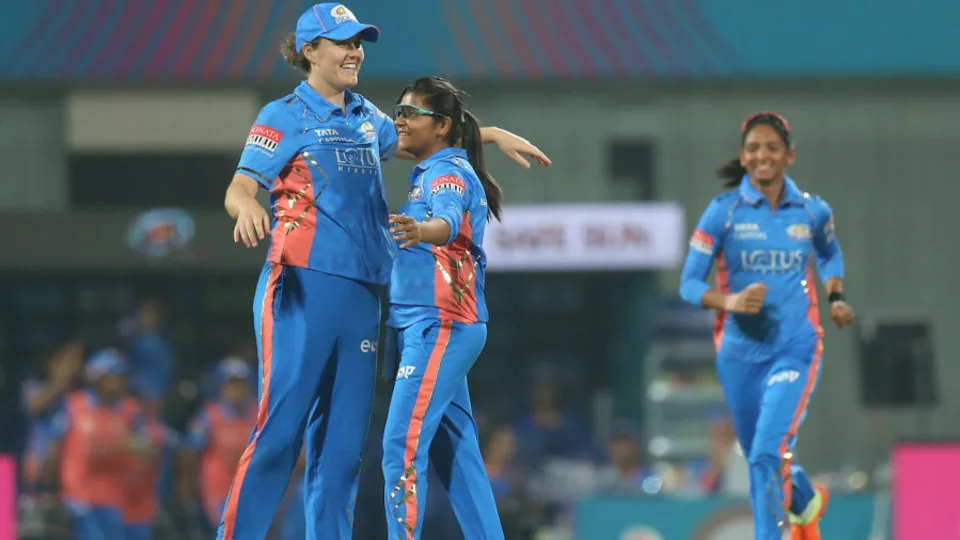
In a groundbreaking move, the Women’s Premier League (WPL) has become the first T20 league to permit players to review wide and no-ball decisions using the Decision Review System (DRS). This rule change is set to be introduced in the upcoming IPL as well.
According to the WPL playing conditions, players may request a review of any decision made by the on-field umpires regarding a batter’s dismissal, except for “Timed Out” (Player Review). Additionally, players can now review any decision related to wide or no-ball calls.
Previously, players were only permitted to challenge on-field decisions regarding dismissals, but this will no longer be the case in the WPL and IPL. These reviews, which pertain to wides and no-balls, will be included as part of the two unsuccessful reviews allotted to each team per innings. However, DRS reviews for leg-bye decisions will not be permitted.
The use of this new feature has already been witnessed in the first two matches of the WPL. In the tournament’s opening game between Mumbai Indians and Gujarat Giants, the on-field umpire called a delivery from Mumbai spinner Saika Ishaque a wide down the leg side. Mumbai challenged the decision through DRS, and it was overturned after replays showed that the ball had grazed the batter Monica Patel’s glove.
In another instance on Sunday afternoon, Delhi Capitals batter Jemimah Rodrigues opted for a similar review. After striking a full toss from Megan Schutt for four runs, Rodrigues noticed that the on-field umpires had not signaled a no-ball for height. Rodrigues utilized the DRS to challenge the decision, but the review was unsuccessful as replays and ball-tracking revealed that the ball was dipping on the batter, and Rodrigues had crouched down significantly, almost onto her back knee.
Former ICC Elite Panel umpire Simon Taufel expressed his disapproval of the use of DRS to review wides and height no-balls in T20 cricket when he spoke to ESPNcricinfo last year.
“I’m really conscious around trying to turn the art of officiating into a science and seek perfection, whatever that looks like, with decision making,” Taufel had said. “So with wides for example, and here we’re going to, potentially according to you, or according to the player or the debate, take a wide call and throw that back to the third umpire for them to judge on something that might be marginal and is still a judgement call.”
“Are you going to be able to overrule as a third umpire what a leg-side wide might look like? That’s a really interesting proposition to throw to a third umpire and say: I definitely think you got that wide wrong. If you look at a ball that cuts across a right-hander from a left-armer (fast bowler), that cuts the wide guideline – that’s a pretty big call to overrule. Can you clearly define for me what conclusive evidence is to overturn a wide both leg-side, off side and height?
“And where do you then draw the line as to what a wide is? Because with wides, for example, you still got this opinion around: either could the batsman have played a shot? Has the batsman brought the ball sufficiently within reach? And you are putting them (under) a lot more stress and pressure around those definitions. Of course, if the ball has flicked the bat or the pad, and an umpire’s called a wide – yeah, that’s quite clearly an error. (But) I worry about where this is going to end up. Is everything that an umpire does likely to fall under the Decision Review System?”
The IPL has seen its fair share of controversies in recent times, particularly surrounding contentious no-ball decisions for height. In a game between Chennai Super Kings and Rajasthan Royals in 2019, captain MS Dhoni walked onto the field from the dugout after Ben Stokes bowled a high full toss. Umpire Ulhas Gandhe initially signalled a no-ball for height, but his square-leg colleague Bruce Oxenford overruled him. This led to heated arguments on the field, with batters Ravindra Jadeja and Mitchell Santner also getting involved before Dhoni himself marched onto the field to discuss the matter with the umpires.
A similar incident occurred in another last-over finish involving the Royals last year. Rovman Powell hit a full toss from Obed McCoy for six, but upon realizing that the umpires had not signaled a waist-high no-ball, the batters engaged in a discussion with the on-field umpires. Capitals captain Rishabh Pant then asked assistant coach Pravin Amre to go and speak to the umpires.
Also, see:
PCB approves changes in PSL 8 squads
